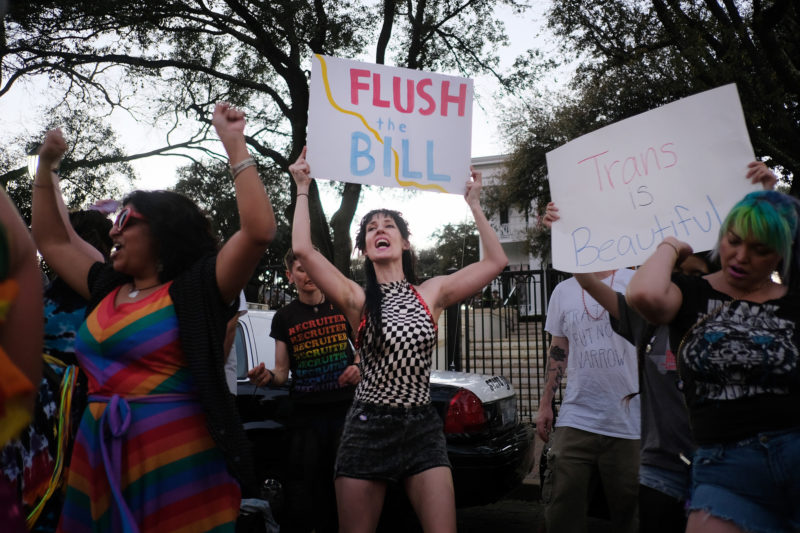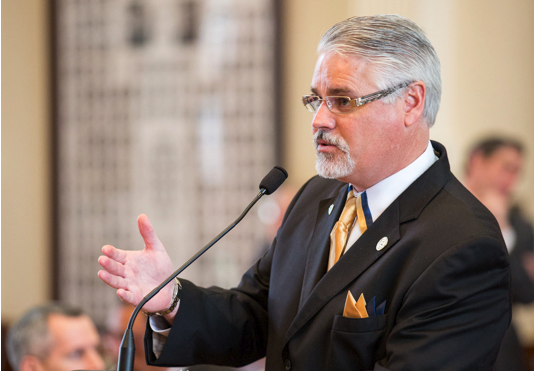For Houston Public Media, Andrew Schneider reports on that the House bill’s attempts to placate the business community. Lawmakers heard testimony on the bill into the early morning on Thursday. Texas Standard speaks with KUT’s Ben Philpott about hearing.
The House bill aims to get local governments and school districts out of the business of enforcing transgender restroom policies. It would roll back local ordinances allowing transgender individuals to use the facilities of the gender with which they identify. That includes policies in place at Houston ISD.
But the bill wouldn’t require public schools or universities to limit bathroom use to the gender on people’s birth certificates – as required by the Senate version.
Supporters of the House version – sponsored by Rep. Ron Simmons (R-Carrollton) – are hoping it will placate Texas business leaders. The Simmons measure is similar to the compromise worked out by North Carolina legislators to repeal that state’s bathroom bill, leading the NCAA to lift its ban on tournaments in the state.
The Perryman Group, an economic analysis firm based in Waco, conducted a study on behalf of San Antonio’s tourism council on the impact of bathroom bills. It concluded any such legislation could cost the state’s economy $3 billion a year. The study found the Houston area could lose more than three-quarters of a billion per year, as well as more than 8,000 jobs.
Ben Philpott, senior editor at KUT, says the House alternative would not require people to use the bathroom that matches the gender on their birth certificate, but this language still isn’t satisfying the bills’ opponents.
“What the bill says is…that municipalities or even school districts cannot enact any anti-discrimination ordinances,” Philpott says. “They cannot include new classes of people that federal or state law does not already protect.”
That means if it isn’t already in federal law or state law, local districts cannot extend protections to a group of people.
The bill passed in North Carolina phases out a law that municipalities cannot enact their own anti-discrimination ordinances, a big difference from the Texas House bill, which keeps that language in.
The bill is part of a larger trend in Texas’ battle of state versus local control. Texas has stuck its hands into everything from ride-hailing to fracking rules within a city’s limits, Philpott says.
Philpott says that just because the House bill got a hearing, doesn’t mean it’s going to make it onto the House floor. House Speaker Joe Straus (R-San Antonio) does not see the bill as a priority and has yet to change his mind on that.















